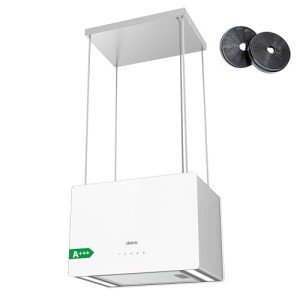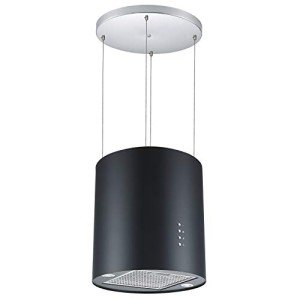본문

Island Extractors: A Comprehensive Guide to a Unique Industry
In the world of extraction industries, couple of sectors capture the imagination as vividly as that of island extractors. These specialized entities concentrate on the extraction of important resources, both eco-friendly and non-renewable, from island island extractor fans environments. This post explores the multifaceted world of black island cooker hoods extractors, discussing their operations, ecological impacts, and the future of this specific niche industry.
Understanding Island Extraction
Island extractors are business or people that participate in the extraction of natural resources found on islands. This extraction can include a variety of materials, such as minerals, nonrenewable fuel sources, and even marine resources. Given the special communities discovered on islands, the extraction process can present both chances and inherent obstacles.

Classifications of Island Extraction
Island extraction can normally be categorized into numerous classifications:
| Category | Description | Examples |
|---|---|---|
| Mineral Extraction | The removal of minerals from the earth | Kaolin, Bauxite, Iron Ore |
| Fossil Fuel Extraction | Extraction of fuels formed from raw material over millennia | Oil, Natural Gas |
| Marine Resource Extraction | Harvesting resources from oceanic environments | Fish, Seaweed, Shellfish |
| Renewable Resource Extraction | Extraction of sustainable resources | Wood, Freshwater |
The Process of Island Extraction
The extraction process itself can vary significantly based on the resource in concern. The procedures for extracting oil diametrically vary from those for collecting seafood.
Actions in the Extraction Process
- Exploration: This phase involves geological studies and preliminary studies to examine the capacity of the resource.
- Regulations Compliance: Compliance with regional and international ecological laws is essential to ensure sustainable practices.
- Extraction: This consists of drilling for oil or mining for minerals, and can trigger substantial interruption to regional ecosystems if not managed properly.
- Transportation: Extracted resources generally require transportation back to the mainland or other markets, typically involving the usage of ships and barges.
- Post-Extraction Restoration: Efforts to restore the environment post-extraction are vital to reduce long-lasting effects.
Ecological Impact of Island Extraction
Offered the vulnerable nature of island hood extractor ecosystems, the ecological effect of extraction activities can be considerable.
Key Environmental Concerns
- Environment Destruction: The physical removal of landscapes can devastate regional plants and fauna.
- Contamination: Resource extraction can introduce toxins, leading to ocean acidification, water contamination, and air quality destruction.
- Coastal Erosion: Activities can intensify coastal erosion, altering the natural landscape and affecting local neighborhoods.
- Biodiversity Loss: Extractors frequently interfere with local ecosystems, putting native types at danger.
Mitigation Measures
To counteract these impacts, island extractors are significantly embracing sustainable practices which consist of:
- Implementing more stringent environmental guidelines
- Using innovation for much safer extraction processes
- Performing comprehensive environmental effect evaluations (EIA)
- Engaging with regional communities during preparation and operation phases
The Future of Island Extraction
As international demand continues to rise for natural resources, the future of island hood extractor extractors appears appealing yet intricate. A number of aspects will form the trajectory of this industry in coming years:
- Technological Advancements: Innovations in extraction innovation might result in more efficient and less environmentally disruptive approaches.
- Regulatory Changes: As climate change ends up being an ever-pressing concern, more stringent policies might redefine extraction practices, prioritizing sustainability.
- Pressure from Environmental Groups: Increased advocacy for the defense of biodiversity and Island Hob Extractor communities can affect operational protocols.
- Shift towards Renewable Resources: A growing focus on sustainable energy options might change the focus from non-renewable extraction to sustainable practices.
Frequently Asked Questions
What resources are frequently drawn out from islands?
Typical resources drawn out from islands consist of minerals, fossil fuels, lumber, freshwater, and marine resources such as fish and seaweed.
How do island extractors ensure sustainability?
Island extractors can ensure sustainability by sticking to ecological guidelines, including innovation that minimizes impact, and restoring environments post-extraction.
What are the significant obstacles dealt with by island extractors?
Obstacles include compliance with regulations, handling environmental effects, logistical problems associated with transport, and engaging with regional neighborhoods affected by extraction.
Exist any significant island extraction tasks?
Yes, various jobs exist globally, consisting of mineral mining in the Caribbean, oil drilling in the North Sea, and sustainable fish farming initiatives in Southeast Asia.
The world of island extractors is a complex interplay between financial chance and ecological duty. As this industry develops, the difficulty will be to balance resource extraction with the need to protect fragile Island Range Hood With Delay Shut-Off communities. By welcoming sustainable practices and engaging with local communities, island extractors can forge a course that respects both nature and industry, guaranteeing that these unique environments are maintained for generations to come.
댓글목록
등록된 댓글이 없습니다.